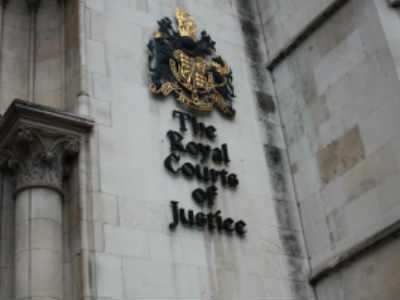
Councils will be hit by upwards of 80,000 extra Deprivation of Liberty Safeguards (Dols) referrals this year in the wake of a landmark Supreme Court ruling that widened the definition of deprivation of liberty in care, according to research by directors.
Estimates gathered by the Association of Directors of Adult Social Services (Adass) from 106 of 152 local authorities in England found that Dols referrals from hospitals and care homes will hit 93,900 in 2014-15, up from 10,050 in 2013-14. The councils also expect the number of applications they make to the Court of Protection to authorise deprivations of liberty in settings that are not subject to Dols – notably supported living – to hit 18,633 in 2014-15, up from 134 in 2013-14.
Taken together the activities mark a ten-fold increase in deprivation of liberty cases from 10,184 in 2013-14 to 112,533 in 2014-15. The councils anticipated the costs of meeting the surge in demand to be at least £45m, excluding legal costs, Adass said. Extrapolated to cover all councils in England and Wales the bill is likely to exceed £70m.
David Pearson, president of Adass, said the association’s “starting point” was to make sure that the best interests of people deprived of their liberty was the “paramount consideration” but he acknowledged that the rise in referrals placed a significant resource burden on councils at a time when adult social care budgets were under extreme pressure.
“We don’t have enough staff currently. We have predicted there will be a need for a substantial increase in the numbers of best interest assessors and people providing the relevant assessment and information to the courts,” he said.
“I think local authorities are pretty used to dealing with complexity and difficulty [but] we’ve taken huge reductions in our funding levels in recent years. Adult social care has taken a £2.6bn reduction over the last three years so this is not easy for local authorities to find that money [the £45m extra costs].”
The Supreme Court ruling
The court ruled that people are deprived of their liberty if they:
- Lack the capacity to make decisions about their care and residence and;
- Are subject to continuous supervision and control under the responsibility of the state and;
- Lack the option to leave their care setting
The Adass survey marks the first significant attempt to assess the resource implications of the Supreme Court ruling (see box right) in March in the cases of P v Cheshire West and P&Q v Surrey County Council that effectively lowered the threshold for deprivation of liberty in care. It meant that many people are likely to have been deprived of their liberty unlawfully in settings including care homes and supported living, placing a strain on councils to assess them under Dols or make applications to the Court of Protection.
For each Dols case, councils must commission six assessments before authorising or rejecting the application to deprive a person of their liberty. The most significant is the best interests assessment, which determines whether the person is being or will be deprived of their liberty and, if so, whether this is in their best interests.
The survey results were included in evidence presented today at a Court of Protection hearing that is considering how the deprivation of liberty process could be “streamlined” to cope with the surge in cases while complying with European human rights law.
The hearing before Mr Justice Munby is taking place at the Royal Courts of Justice and is expected to last two days. It is hearing evidence from lawyers representing councils, the government, NHS commissioners and other parties on the impact of the Supreme Court ruling.
Options under discussion to streamline the deprivation of liberty process include the potential for the Court of Protection to process ‘bulk’ applications, whether court officials could sign-off decisions rather than a judge, and whether more applications can be processed without an oral hearing.
The court will also consider whether it can extend the timescales for completing Dols assessments for urgent authorisations without the need for an oral hearing. The current system requires the majority of such assessments to be completed within seven days following an urgent authorisation, but allows 14 days in exceptional circumstances.
A government spokesperson said: “It is completely unacceptable to unlawfully deprive vulnerable people of their rights.
“We are committed to making sure that the Mental Capacity Act is used to protect people receiving care and support. We are working with the Care Quality Commission to improve inspection regimes to make sure the law is being used properly. We’re also working with ADASS and the courts on new guidance for local authorities to ensure they are applying the law correctly.”


 Bournemouth, Christchurch and Poole
Bournemouth, Christchurch and Poole  Hampshire County Council
Hampshire County Council  Lincolnshire County Council
Lincolnshire County Council  Norfolk County Council
Norfolk County Council  Northamptonshire Children’s Trust
Northamptonshire Children’s Trust  South Gloucestershire Council
South Gloucestershire Council  Wiltshire Council
Wiltshire Council  Wokingham Borough Council
Wokingham Borough Council  Children and young people with SEND are ‘valued and prioritised’ in Wiltshire, find inspectors
Children and young people with SEND are ‘valued and prioritised’ in Wiltshire, find inspectors  How specialist refugee teams benefit young people and social workers
How specialist refugee teams benefit young people and social workers  Podcast: returning to social work after becoming a first-time parent
Podcast: returning to social work after becoming a first-time parent  Podcast: would you work for an inadequate-rated service?
Podcast: would you work for an inadequate-rated service?  Family help: one local authority’s experience of the model
Family help: one local authority’s experience of the model  Workforce Insights – showcasing a selection of the sector’s top recruiters
Workforce Insights – showcasing a selection of the sector’s top recruiters 

 Facebook
Facebook X
X LinkedIn
LinkedIn Instagram
Instagram
Comments are closed.